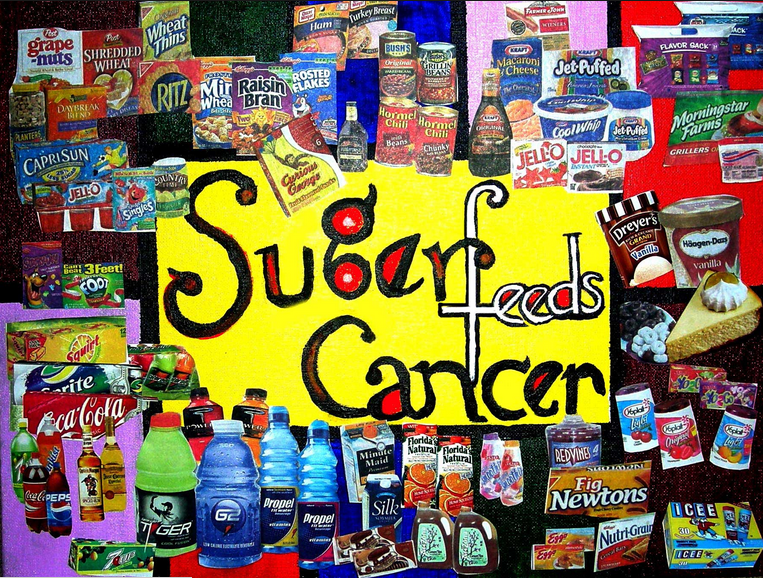Cancer Risk: Sugar and Insulin
Cancer Risk: Sugar and Insulin
Diabetes is a sugar disease. It is a disease in which the body does not produce insulin or make proper use of it. Insulin is useful in the body in utilization of blood glucose. It allows glucose to be absorbed in the cells to enhance the production of energy. In the condition of diabetes, insulin is not effective which results in the blood being saturated with glucose. This leads to high glucose levels in the blood.
Obesity is the major cause of diabetes. It induces the resistance of the body to insulin. When this happens, the body is not able to break down glucose into energy. This causes glucose to accumulate in the blood.
To make do with this insulin resistance, the pancreas ends up producing more insulin. This leads to a rise in insulin in the blood. This insulin production can go on for years but it is not indefinite. Eventually insulin production will wear out and this will result in blood sugar increase. When this happens, it is then that an individual is diagnosed with diabetes.
There are different kinds of diabetes in the world today. There is type 1 diabetes which results from the inability of the blood to produce the insulin hormone. Type 2 diabetes on the other hand comes about when the body is unable to properly utilize the hormone. Another type of diabetes is pre-diabetes. This results when the blood glucose levels in the blood are higher than normal although not high enough to become type 2 diabetes. The fact is that over 79 million Americans today are pre-diabetic.

Diabetes and cancer
As is a link between sugar and cancer, there’s the same between diabetes and cancer. Diabetes has been linked to pancreatic cancer. It is in most cases a symptom of pancreatic cancer or a risk factor. Studies have shown pancreatic cancer can occur to patients who have heard diabetes for over five years. The research done on pancreatic patients who have had diabetes for less than five years was unclear if diabetes was in itself the cause of the cancer.
As a symptom for pancreatic cancer, studies have shown that onset diabetes in people who are over 50 years of age may be in itself a symptom. Abrupt changes in the levels of sugar in the blood in diabetics who had controlled sugar level is also a symptom of pancreatic cancer.
Insulin Resistance Link to Cancer
This link may be related to the high level of insulin compensation. Obesity causes the body to resists insulin and this causes the pancreas to produce more insulin. This leads to increase in insulin levels in the blood. Insulin contributes greatly to the growth of body tissues. It increases with increase in essential nutrients and reduces when the body is derived of these nutrients.
Insulin may cause cells to rapidly increase. This occurs when insulin causes an increase in insulin-like growth factors (IGF). It could also cause cells to become more sensitive to other factors of growth. One characteristic of cancer cells is their ability to uncontrollably grow and become resistance to agents of cell death.
Growth factors play a major part in the growth of cancer cells as well as their progression. Past studies have shown that people with high levels of insulin-like growth are in more risk of developing, breast, colon or prostate cancer.
Resistance to insulin is characterized by the cells losing their sensitivity to the effects of insulin to aid in the absorption of glucose into the cells. Although this is so, it continues to promote the growth of cells in the body. Only the ability of insulin to transport glucose is affected.
The resistant state of insulin promoted by diabetes may in this case promote the development of cancerous cells. As the amount of insulin increases in the blood, so does its ability to induce cell growth. When this happens it leads to a cancer characteristic of uncontrollable growth of cells. As the pancreas continues producing insulin an individual may not get diabetes but he/she increases the rate of getting cancer.

Sugar and Cancer
When most of us hear about sugar we instantly think about the white substance we take in our beverages. Sugar has been linked to causing cancer. So what do most of us do? We cut out the sugar in our body including those that are essential. We cut out eating fruits such as oranges that have natural sugars.
You end up depriving your body of essential nutrients such as fibers found in fruits. However, sugar does not necessarily mean what you take in your tea or in fruits or soft drinks. It is widely used to describe those sugars in our body. Sugar also called glucose is very necessary for a healthy you. It is broken down into energy hence you are able to do those daily task.
High blood levels in the blood cause diabetes. This results in the insulin not being produced or appropriately used. When this happens a person is said to be diabetic. Sugar goes back to the case of diabetes and as seen it can increase a person’s risk of cancer.
Dr. Dr. Dalal Akoury has had years of experience with patients with cancer as well as diabetes. She has vast knowledge about sugar and insulin and their link to cancer. Just visit www.awaremednetwork.com for more expert opinion on this topic and more health tips.
Cancer Risk: Sugar and Insulin







 Hot flushes
Hot flushes






 Obesity in America: Safe Rapid weight loss, Obesity is preventable
Obesity in America: Safe Rapid weight loss, Obesity is preventable